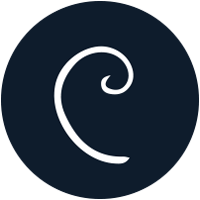

How can you free yourself from being lost in your thoughts? To understand the answer we must examine the chain reaction of thought. Every thought that passes through your mind sets the background for the next one. Your attention keeps reacting to each thought in a way that makes way for the next. For example, you check your bank account and find out that your balance is £200. You immediately react with the thought: “That’s much less than I expected”, which, in turn, invites: “I am so bad at managing my money”; this will trigger: “I should have taken that job”; and so on and so forth. You will come round five or fifty minutes later, realising that you were gone, submerged in this thinking process. This experience is entirely based on reaction. To establish new relations with your thinking experience and develop aware thinking you must be able to break the cycle and develop the skill of non-reaction, the ability to come in touch with an event, a thought, a feeling, and having the choice of not reacting to them.
Here and now exercise 3: Writing your thoughts
Have pen and paper ready in front of you. Take a deep breath and relax your body. When you feel ready, start observing your thoughts. For two minutes, write down any thought that pops up in your mind, no matter how silly or meaningless it seems. The point of the exercise is to make you aware of your thoughts and not to evaluate them. If a new thought follows an earlier one write the new one as well. A thought may be as simple as “why am I doing this?” followed by “this might be beneficial”. The exercise is meant to give you a taste of the type of observation required to master the non-reactive skill. All you have to do is keep observing and writing.
Ego concepts grow and shrink
An ego concept feeds on your reaction to it. Every time you react to a potential ego concept such as “I never do anything right” the concept becomes stronger. When the thought that you should do better at your work pops up in your mind, it triggers next the thought that you are unsuccessful in your job, and then the thought that you should have chosen a different job. Not only does this produce a chain reaction that pulls you off track for long minutes; it also builds up this particular ego concept. You are feeding the ego concept “I am unable to do things right” when you keep piling examples that seem to prove it, and make you feel even worse. You are on a rollercoaster of thoughts and ideas that energise not only this particular ride but also similar rides that may potentially occur under similar circumstances in the future.
If reaction strengthens an ego concept, what would it take to weaken it? What would make it disappear? Becoming aware of them is profoundly important: it enables you to detect them when they kick in at different moments. Now you are ready to take the next step, and begin working with your ego concepts and eventually dissolve them. If reacting to an ego concept with an avalanche of thought strengthens the concept, then non-reactive attention would have the opposite effect. Ego concepts and the thoughts that accompany them thrive on the reactive attention they receive. When this stops, and your attention becomes non-reactive, you strangle them, starve them, until they slowly shrink and disappear. The moment you begin observing your thoughts nonreactively, observing your ego concepts, these thoughts slowly shrink and disappear – they no longer have anything to hold on to as you no longer fuel them as you did in the past. An ego concept is like a camp fire. Every time you react to it in any way, you add another piece of wood to the fire. A powerful emotional reaction would be a large piece of wood while a minor cognitive reaction would be a splinter, but both will feed the fire. The larger the fire is, the stronger your temptation to add wood to it. Your most powerful ego concepts are so strong that you feel you are compelled to react, to add the wood. As you grow, you will realise that your own reactions were the fuel that strengthened the fire, and will switch to non-reaction through meditation. Although the fire continues to blaze, inviting your consciousness to provide the vital wood, you are able to stay peacefully in front of the fire, and not strengthen it. With time, this camp fire will become smaller and smaller until at some point it will disappear. That particular ego concept will no longer have an impact on you.
Your reactive attention has been feeding your main ego concepts for years; they will not disappear in a day. But consistent non-reactive attention will gradually weaken them until they lose their powerful hold on your consciousness. In order to soar, this process must have two wings; the first is your attention, the second – your non-reactive attitude. Flapping only one would be meaningless: focusing your attention while reacting would only strengthen the pattern, and being nonreactive without being focused on the pattern would not make it shrink. Flapping both wings together would allow you to soar, fly towards freedom.
Dr Itai Ivtzan is passionate about the combination of psychology and spirituality. He is a positive psychologist, a senior lecturer, and the program leader of MAPP (Masters in Applied Positive Psychology) at the University of East London (UEL). If you wish to get additional information about his work or contact him, please visit www.AwarenessIsFreedom.com
Awareness Is Freedom: The Adventure of Psychology and Spirituality - Awareness Is Freedom: The Adventure of Psychology and Spirituality proposes a unique combination of spiritual and psychological concepts that together lead to greater self-awareness and wellbeing. It is structured as eight lessons, each focusing on different aspects of psychology and spirituality, to support readers in their personal journey of self-growth.

BUY NOW
You May Also be Interested In:
Categories:
0 comments on this article








